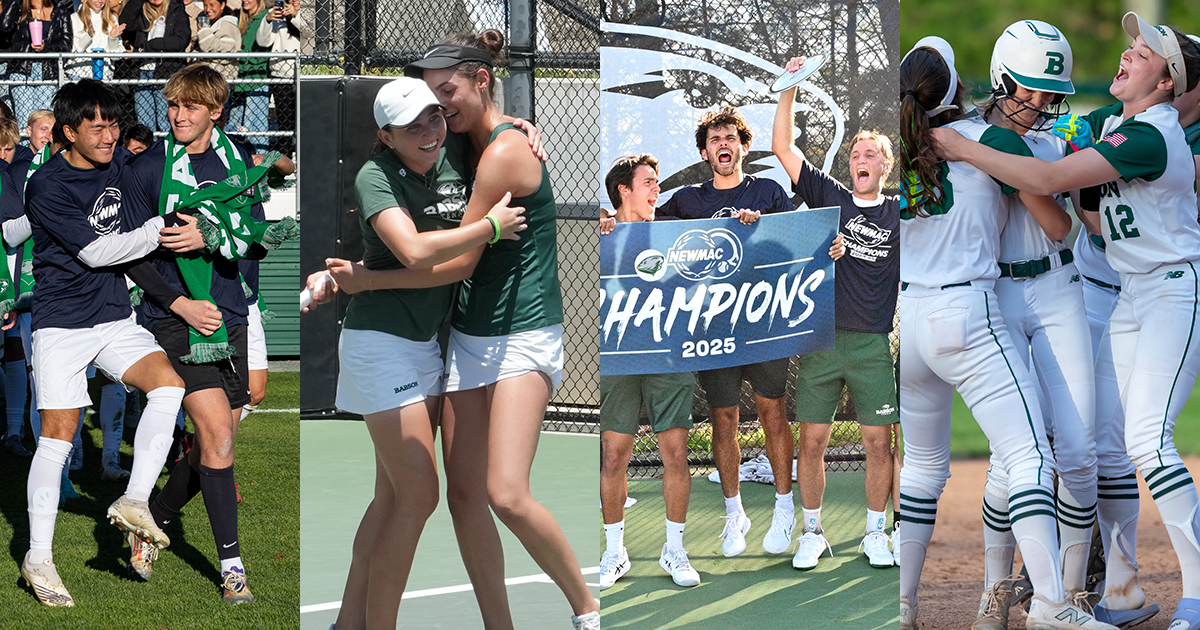5 Tips to Future-Proof Your Career

Navigating the future is something every college student has or will encounter. And, every generation has its challenges. Today’s workforce already has seen major shifts with the pandemic and more recently with the rise of generative AI. The rapidly changing future of work—or “future of everything,” some may say—can make it feel like it’s hard to keep up.
To keep up with the times, students and professionals need to future-proof their careers, says the Graduate Center for Career Development (CCD) at Babson College—ranked the No. 1 school for career preparedness by The Wall Street Journal.
The CCD—which offers resources, workshops, and even a podcast for students and alumni—offers these five tips to future-proof your career.
1. Embrace Lifelong Learning
“You future-proof your career when you’re dedicated to lifelong learning,” said Jessica Chance, director of Babson’s Graduate Center for Career Development. Building mental and creative agility is a must-have for students to position themselves for future internships and jobs, she added.
Following curiosity, acquiring new skills, and investing time into learning outside the classroom are ways keep lifelong learning at the forefront.
Generative AI, specifically, is an important new skill to learn. Not only is it something entrepreneurial leaders can harness, but it also can aid with career development. Lily Awad, CCD senior associate, showcases this in her workshop “Generative AI as a Career Development Tool.
Aside from helping students understand their fit for certain roles, these tools “help students get ‘unstuck’ when deciding on different career paths,” Awad said. By inputting a prompt with a set of their skills, students can find job titles or roles they might not have otherwise considered.
2. Harness Self-Awareness
Harnessing self-awareness means looking beyond the accomplishments of a resume; it involves story, and it involves starting with your “why.” Think of it as a “professional mission statement,” Awad said.
The CCD’s Susanne Schneider-Kivelitz offers the popular “How to Tell Your Story” workshop that helps students not only identify their strengths but also learn to tell the story—the emotions and reasons that go beyond facts, stats, and information on their resumes.
The CCD also offers worksheets exercises that walk students through their story: starting with “why” and ending with actionable steps.
3. Develop Foresight
Schneider-Kivelitz recommends observing the world, identifying trends, and staying open to change, even if it is scary.
“Assessing what skills are needed in the future, acquiring or refining those skills, and shaping your value proposition are key steps in proactively preparing for the evolving job market,” she said.
In the “Managing Your Career & The Future of Work” workshop, Awad and career coach Lisa Mesicek MBA’07 teach students how to prepare for the unknown and position yourself for success by playing out scenarios with real and simulated case studies—offering a practical way to stay future-proof.
4. Retain A Growth Mindset
Future of work refers to the continuous evolution of how work is conducted, says CCD senior associate director Margaret Jones. New technologies, societal changes, culture shifts, and other factors all contribute.
Because of this constant change, keeping a growth mindset—that is, an openness to learning and adapting—is key to staying future focused. Fixed mindsets can act as roadblocks, while Entrepreneurial Thought & Action® (ET&A™) emphasizes finding opportunities and staying open to possibility.
To do that, Chance advises students to stay focused on the present. “The future is in the present,” Chance said. “If students remain mindful of their present experiences, they’re also more poised to welcome change.”
5. Build Your Community
The world of opportunities is as big as your community. That’s why networking with peers, mentors, and industry professionals is essential.
According to Awad, focus on making connections with those who offer information, develop foresight, give feedback, and support your goals. It’s not only about amassing contacts—rather, but also about nurturing relationships that add value to your journey.
To start, follow thought leaders on social media, Awad said, then narrow down to those accessible for one-on-one conversations. The CCD’s “Networking Conversations Workshop” walks students through this process, and includes tips for finding new connections, sending personalized messages, and following up with intention.
Staying updated with the Grad CCD office can help students be aware of alumni campus recruiting, events, and other opportunities for connection.
Posted in Insights





